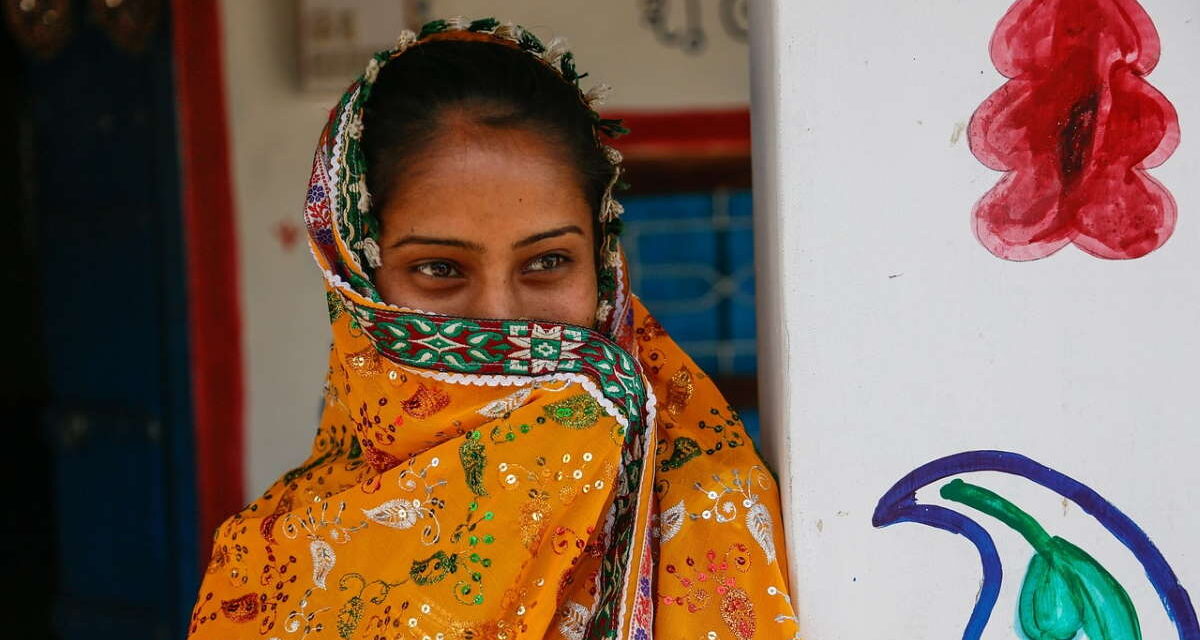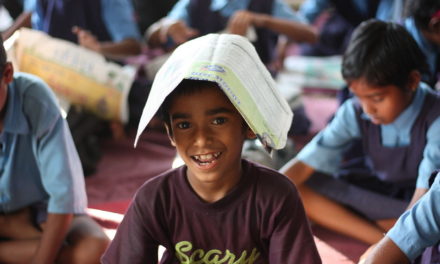Warming up!
Chit-Chat
1. Discuss the following in your groups.
(a) Various social evils that exist in – big cities – small towns – villages.
Social evils that exist in big cities:
• Class based discrimination
• Corruption
• Child labour
• Cutting of trees for urban development
• Hunger for money and power
Social evils that exist in small towns and villages:
• Gender based discrimination
• Underage girl marriage
• Poverty
• Illiteracy
• Religious and Superstitious beliefs
Social evils exist in all parts of our society regardless of cities, towns or villages. It is important that we fight these social evils through continuous awareness campaigns and ensuring every child in the country is able to get a proper education.
We also need to empower people to fight against corruption, discrimination and abuse of authority by those in power.
2. Very few youngsters like to take up social work as a career. Discuss reasons why they do not take it up seriously.
There are various reasons why very few youngsters in our country take up social work as a career. Firstly, there is an awareness issue. Most students do not even know the opportunities that are available in the social sector. Pretty much all career counselling services whether private or in school do not talk about social work as a viable career option. Hence most students feel they will not be able earn well and support their family if they get into social work.
The second biggest issue is of perception. Most people think social work is only volunteering and there are no good paid options. They also think only those who are affected by a particular social problem are more keen on taking up social work to solve their own problems. This could not be more further from the truth. There are many enterprising young people who have made social work their career and have done well in life.
If we genuinely want our youngsters to take social work more seriously as a career option, we need to change our own perceptions towards the sector. There needs to be better awareness campaigns and career counsellors need to talk about social work as a potential option with their students.
1. Adjectives and some Adverbs can be used in three degrees of comparison.
Positive – For example, cold, tall, heavy, fast, beautiful, little
Comparative – For example, colder, taller, heavier, faster, more beautiful, less
Superlative – For example, coldest, tallest, heaviest, fastest, most beautiful, least
Fill in the Table
Positive – Comparative – Superlative
Simple – Simpler – Simplest
Pretty – Prettier – Prettiest
Deep – Deeper – Deepest
Intelligent – More Intelligent – Most Intelligent
Good – Better – Best
Affectionate – More Affectionate – Most Affectionate
Young – Younger – Youngest
Near – Nearer – Nearest
Quick – Quicker – Quickest
Much or Many – More – Most
2. Pick out Hindi words used in the story written in English. Give their English alternative.
a) Bholi – Simpleton
b) Numberdar – Revenue Collection Officer
c) Tehsildar Sahib – Town administrator
d) Pitaji – Father
e) Izzat – Honour
3. Write three advantages and three drawbacks for each of the following.
City Life:
Advantages:
• Better infrastructure
• Better education system
• Access to better products and services
Disadvantages:
• Pollution
• Class based discrimination
• Less greenery
Village Life:
Advantages:
• Clean air
• More greenery
• Simple and safe life
Disadvantages:
• Gender inequality
• Poor infrastructure and no access quality education or healthcare
• Superstitious beliefs
From the chapter pages
1) Think and discuss:
- Appearance of Bholi
Ans: Due to an attack of small pox when Bholi was only two years old, her body was disfigured with deep black pockmarks all over except for the eyes. Bholi was not considered as good looking and was seen as weak.
- Ramlal’s decision to admit her to school
Ans: At first Ramlal and his wife did not want Bholi to be admitted to school. They were worried what others would say and no one would marry Bholi in the future. However, since the Tehsildar Sahib himself asked Ramlal to set an example and send Bholi to school, he reluctantly agreed and got Bholi admission in the primary school. He thought because she was ugly no one would marry Bholi anyway and now she was the teacher’s responsibility.
2) Why did Ramlal’s wife oppose sending Bholi to school?
Ans: Ramlal’s wife opposed sending Bholi to school because she believed if girls went to school, then no one would marry them. Also she thought Bholi was both ugly and lacking sense.
3) What shows that Bholi was unwilling to go to school?
Ans: The fact that Bholi shouted in terror and pulled her hand away from her father’s grip showed she was unwilling to go to school.
4) How did Bholi’s parents change her appearance?
Ans: Bholi parent’s changed her appearance by firstly providing her with a clean dress. She was also bathed and oil was rubbed into her dry and matted hair.
5) What made the class attractive to Bholi?
Ans: Bholi was glad to find so many girls almost of her own age present in the school who could become her friends. She was also fascinated by the pictures and colours on the wall. All this made the class attractive to Bholi.
6) Why did Bholi feel ashamed?
Ans: Bholi felt ashamed as she stammered when the teacher asked her name. She could not even complete saying her own name and knew the other children were laughing at her.
7) How would you describe the teacher’s attitude towards Bholi?
Give 3 to 4 points.
Ans: The teacher’s attitude towards Bholi was the most important factor in changing Bholi’s life. The teacher was extremely patient with Bholi and did not allow her to see her stammering as a weakness. She always had a friendly attitude towards Bholi.
Bholi had never met someone who spoke so nicely to her and she found the teacher’s voice to be soothing.
The teacher was always affectionate towards Bholi. She was the one to encourage her and gave her hope that one day she would be able to speak like anyone else and also learn just like other children in the school.
It was thanks to the teacher that Bholi was able to gain confidence in herself and overcome any challenge in front of her.
8) Which words could Bholi utter whole?
Ans: Bholi as able to utter whole her own name and the word ‘yes’ thanks to the teacher’s encouragement.
9) How did the teacher encourage Bholi to overcome her stammering?
Ans: The teacher was extremely patient and friendly with Bholi. She encouraged Bholi to repeat the words she was stammering till she got it right. She even gave her a book with pictures and words to help Bholi practice talking without stammering. The teacher helped Bholi practice her words till she gained confidence in talking properly.
10) What were the drawbacks of Bishamber, as a bridegroom?
Ans: Bishamber was almost as old as Bholi’s father and was over forty-five years of age. He used to also limp. His children from the previous marriage had also grown up. These are the main drawbacks of Bishamber, as a bridegroom.
11) Why were Bholi’s parents eager to accpet Bishamber’s proposal for marriage?
Ans: Bholi’s parents were eager to accept Bishamber’s proposal for marriage because he was from another village and did not know about Bholi’s pockmarks. Bholi’s parents were also afraid no one would marry her as they felt she was ugly and lacked sense.
12) Why did the bridegroom refuse to garland Bholi?
Ans: The bridegroom refused to garland Bholi because he saw the pockmarks on her face and felt he should be given a good dowry if he has to marry her now.
13) What was the expression on Bholi’s face?
Ans: The expression on Bholi’s face was of cold contempt. Her eyes were not downcast but instead she was looking up, looking straight at her prospective husband.
14) What shocked the family members?
Ans: The family members were shocked that Bholi not only refused to marry Bishamber, but she spoke fluently without any stammer at all.
15) Besides the humiliation and grief, what was Ramlal afraid of?
Ans: Besides the humiliation and grief, Ramlal was afraid that no one would marry Bholi now and he did not know what to do with her.
16) Name the artist and the masterpiece.
Ans: The artist in this story was the teacher and her masterpiece was Bholi.
English Workshop
1. Complete the following sentences using the words given in the brackets.
(contemplating, humiliate, scurried, disfigured, envious, contemptible, matted, startled)
(a) After the accident, Juhi’s face was disfigured.
(b) It took a long time to straighten the matted bundle of wool.
(c) After class, students scurried out for their lunch-break.
(d) One should never humiliate the disabled people.
(e) Nutan was envious of her sister, who won the ‘Best Singer’ award.
(f) Corruption is a contemptible act.
(g) We are contemplating seriously about buying a new apartment.
(h) I was startled to see a snake in my room.
2. The story focusses on some social problems and evil practices that are prevailing in the society. Read the text carefully and make a list of all social problems and evil practices.
Discuss in the class to find some solutions to these problems. One is done for you.
Social problems and evil practices
1) Discrimination between a boy child and girl child.
2) Underage girl marriage.
3) Making fun of people with disabilities or disfigurations.
4) Dowry
Probable Solutions
1) Both must be treated equal at family, school and society levels.
2) There should be strict law against underage marriage and girls need to be empowered to be self-sufficient, educated and capable of taking care of themselves.
3) There should be proper awareness campaigns, education of everyone right from school level and right to dignity should be strictly followed.
4) Dowry should be illegal and those asking for dowry should be arrested and tried in a court of law. There should also be society level awareness campaigns to ensure there is gender equality and make people understand why dowry is a serious social evil.
3. Fill in the boxes with proper letters so as to find various characters in the story by their specialities. One is done for you.
a) Numberdar
b) Teacher
c) Tehsildar
d) Headmistress
e) Father
f) Neighbour
4. Glance through the story again and describe Bholi’s character before and after her meeting with the teacher. Complete the table and then write two paragraphs describing the change seen in her character. One is done for you.
1)
Before
She was called simpleton, children made fun of her and mimicked her.
After
She became confident and was able to utter her name.
2)
Before
She used to stammer and could not even say a word properly.
After
She could talk fluently without stammering at all.
3)
Before
She was scared of going to school.
After
She loved going to school and even wanted to become a teacher.
4)
Before
She could not look after herself.
After
She not only became self-sufficient, she also wanted to take care of her mother and father at their old age.
Describing the change seen in Bholi
Ans: Bholi seemed like two different people before and after she went to school and met with her teacher. Earlier, Bholi was seen as a simpleton. She would stammer and could not speak properly. To make things worse, she had pockmarks all over her face and body. This made other children make fun of Bholi. Even her own parents thought of her as ugly and someone with lack of sense. All this made Bholi scared and she lacked any kind of confidence.
However, after her first day at school, when she met her teacher, there was a slow but complete transformation in Bholi’s character. Thanks to the teacher’s patience and dedication, Bholi started to talk fluently without stammering. She gained confidence and was able to take care of herself. She was self-sufficient. She wanted to become a teacher herself and also take care of her parents during their old age.
5. Find synonyms from the story for the following words.
• Humiliate – Disgrace
• Repair – Mend
• Attracted – Fascinated
• Surely – Certainly
• Fortunate – Well-to-do
• Contentment – Satisfaction
6. Expand the proverb in about 12 to 15 lines, ‘Where there is a will, there is a way.’
Steps:
- Explanation of the proverb in simple words.
- Examples/Experiences to prove the proverbs.
- Conclusion
Answer:
The proverb ‘Where there is a will, there is a way’ is one of the most famous proverbs in the world. It simply means that if you are determined and ready to work hard, then you will always find a way to achieve your goals.
The proverb tries to tell us that ultimately if you set your mind to something, you will achieve it. However, if you are unsure, lacking intent and have a negative attitude, then even the simplest tasks may become a struggle. Your mind is the most important factor when trying to solve any problem. You need to have determination, a strong will and a positive attitude.
The best example of this proverb can be seen in famous sportspersons. They sometimes win from losing conditions. This is purely because they never lose the will or drive to win the match. Ultimately they overcome great obstacles to achieve their goals.
We can also see examples of this proverb in our own Indian freedom struggle. No matter how dark and grim it got, our brave freedom fighters never gave up hope. They always had a will and determination to one day gain freedom. Against all odds they achieved this for our country.
There are children from underprivileged backgrounds who study under street lights and do not have access to quality education. Yet through their own will and desire to succeed, they work hard and one day not only become fully educated but are able to work in their dream jobs.
So in conclusion, the proverb ‘where there is a will, there is a way’ teaches us one of the most fundamental lessons of life. It teaches us that we will never lose our way as long as we maintain a positive attitude, have the determination and will to succeed.
7. Read the extract beginning from –
“Her name was Sulekha….. find bridegrooms for them.” Narrate this extract in short, making Sulekha (Bholi) the narrator. Write it in your notebook. Begin with “I was named Sulekha……..”
I was named Sulekha but since my childhood everyone had been calling me Bholi the simpleton.
I was the fourth daughter of Numberdar Ramlal. When I was ten months old, I had fallen off the cot on my head and perhaps it had damaged some part of my brain. That was why I remained a backward child and came to be known as Bholi, the simpleton.
At birth I was very fair and pretty. But when I was two years old, I had an attack of small pox. Only the eyes were saved. But the entire body was permanently disfigured by deep black pockmarks. I could not speak till I was five and when at last I learnt to speak, I stammered. The other children often made fun of me and mimicked me. As a result, I talked very little.
My father had seven children, three sons and four daughters and the youngest of them was myself. It was a prosperous farmer’s household and there was plenty to eat and drink. All the children except for myself were healthy and strong. The sons had been sent to the city to study in schools and later in colleges. Of the daughters Radha, the eldest had already been married. The second daughter Mangla’s marriage had also been settled and my father would think of third Champa. They were good looking, healthy girls. And it was not difficult to find bridegrooms for them.
8. Interview
Prepare a set of 10-12 questions that you would ask at an interview of a person who has strongly acted against social injustice and has achieved success inspite of a long struggle against so many odds in his/her life. Write them down in your notebook.
1) What made you take up this cause and was this a personal fight for you?
2) Weren’t you afraid of all the issues and possible dangers?
3) What would you say was your biggest challenge while fighting for social justice in our country?
4) What made you overcome these challenges and stay in the cause for social justice?
5) What help did you get from those around you or the Government during your fight for justice?
6) While you have achieved success in your current fight, what do you think needs to happen to ensure such social injustices do not arise in the future in our country?
7) What would you like to see the Government do to aid people like you who are working for those who can’t fight for themselves?
8) During your struggle, was there any time where you felt like giving up?
9) Are you satisfied with the outcome of your struggle for social injustice or do you believe the fight has just begun?
10) What do you think society must do to not only improve itself but also with those who are the perpetrators of social injustice?
11) What advice would you give our young generation or other social workers who also want to fight for such causes?
12) What is next for you? Are you taking up more such causes or you feel more needs to be done in the current case itself?
Language Study
1. Rewrite the following in Indirect speech. Do it in your notebook.
(a) “Put the fear out of your heart and you will be able to speak like everyone else”. Bholi looked up as if to ask, “Really?”
Ans: When Bholi was told to put the fear out of her heart so that she would be able to speak like everyone else, she looked up in surprise to wonder whether it was true.
(b) “Yes, certainly,” his wife said, “Bholi will be lucky to get such a well-to-do bridegroom.”
Ans: His wife asserted by saying that Bholi would be lucky to get a well-to-do bridegroom like that.
(c) “What will that witless one say? She is like a dumb cow.” May be you are right.” muttered Ramlal.
Ans: When questioned what would that witless one say as she was as dumb as a cow, Ramlal muttered that may be she was right.
(d) “Be a little considerate, please. If you go back, I can never show my face in the village.” “Then out with five thousand.”
Ans: Ramlal pleaded with him to be a little considerate. He told him if they went back, he could never be able show his face in the village. To this, Bishamber demanded that he be given five thousand.
(e) “Pitaji”, Take back your money, I am not going to marry this man.” “Bholi, are you crazy?” shouted Ramlal.
Ans: Bholi asserted to her father to take back his money as she was not going to marry that man. To this, Ramlal demanded to know whether Bholi was crazy.
2. Rewrite the sentences given below as per the given Degree of Comparison without change of meaning.
(a) You are not as young as she is. (Comparative Degree)
Ans: She is younger than you.
(b) His fourth daughter’s wedding was the grandest of all. (Positive)
Ans: No other daughter’s wedding was as grand as that of his fourth daughter.
(c) Bholi was younger than all his other daughters. (Superlative)
Ans: Bholi was the youngest of all his daughters.
3. Correct the errors in the following sentences. Focus on verbs and subject.
(a) All children, except Bholi, was healthy and strong.
Ans: All children, except Bholi, were healthy and strong.
(b) Since childhood, everyone will have calling her Bholi.
Ans: Since childhood, everyone had been calling her Bholi.
(c) If girls goes to school, who will marry them?
Ans: If girls go to school, who will marry them?
(d) New clothes was never made for Bholi.
Ans: New clothes were never made for Bholi.
(e) The garland were flung into the fire.
Ans: The garland was flung into the fire.
(f) Do you wants to hear more?
Ans: Do you want to hear more?
(g) Aren’t that right?
Ans: Isn’t that right?
(h) I will teaches in the same school.
Ans: I will teach in the same school.





